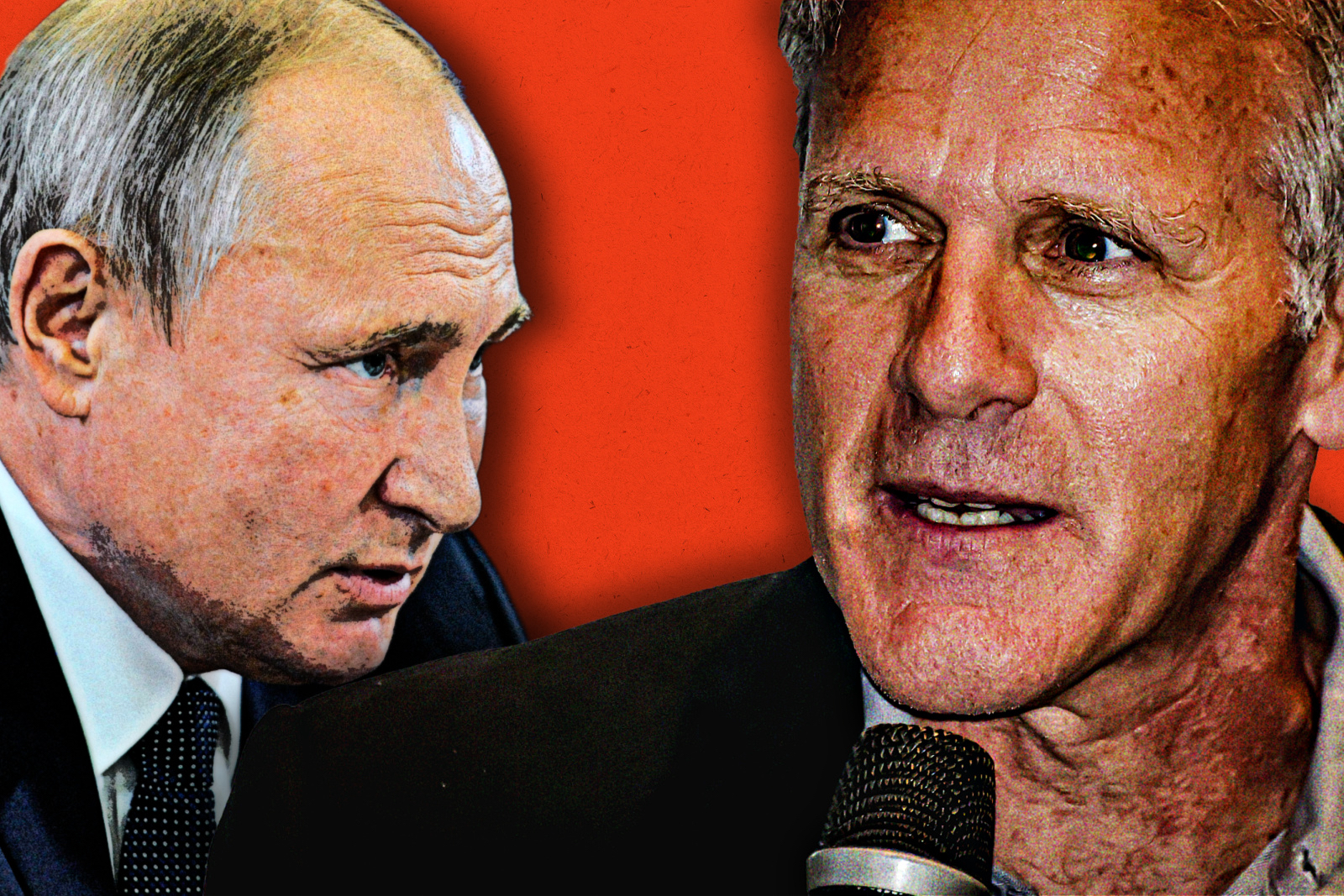
Only Mediation Will End the War in Ukraine.
Since the beginning of Russia’s widely condemned invasion of Ukraine, the Biden administration has rallied popular opinion at home and abroad through the narrative that Russia’s motives and intentions are without merit and even genocidal.
This has made an honest conversation about the history, motives, aspirations, and inevitable global geopolitical and economic consequences of the war almost impossible. Rather than intervene as the U.S. has historically done in every conflict involving Russia since the end of the Second World War, the U.S. chose to pour billions of dollars worth of weapons, equipment, and technical support into Ukraine, without which Kyiv would have been forced to negotiate. Many brilliant, well-informed diplomats and scholars rang alarm bells about U.S. diplomatic hubris to no avail.
Today, after nearly 10 months of war, the consequences predicted by so many experts are now coming home to roost. The strategic, industrial, economic, political, and military situation in Ukraine and in Europe is rapidly deteriorating. Even without Nord Stream, Russia remains the third largest supplier of gas on the European continent. Germany, like the rest of Europe, is filling some of the energy shortfalls in the spot market now at 10 times the previous price.
But it’s not nearly enough to get through the winter. Now the EU is attempting to set a lower-than-market price for fuel from Russia in order to damage them economically. We can easily anticipate Russia’s response. They’ll hold back fuel and sell it elsewhere, making the people of Europe suffer even more than they are now.
Europeans have chosen to remove natural gas from their industrial space, leading to a huge number of industrial closures in Germany, this cuts to the core of their entire industrial model. Thousands of manufacturing closures have occurred with all the attendant layoffs. Auto manufacturing alone is down by more than 25%. Forty percent of the German electorate is questioning what they had been told about the war.
Numbers like this routinely bring down ruling coalitions. Yet we’re hearing little about this in the media—if at all. As goes Germany, so goes Europe. It’s going to be a long, cold winter. A deep recession is inevitable.
In Ukraine, the situation is desperate. Ukrainian victories in Kharkiv and Kherson may have been laudable but they come at a terrible price. By some estimates, since the war began, more than 100,000 Ukrainian soldiers may have been killed or wounded.
As winter sets in, Ukraine is facing epic ongoing destruction of its infrastructure. More than a third of Ukrainians have been displaced and climbing. After the attack on the Kerch Bridge and Russia’s subsequent retreat from Kherson, Russia began launching missile and drone strikes against high-value targets, including power plants, electrical transmission lines, and large transformers. A third of the power grid is down and climbing. Much of the damage will be impossible to repair anytime soon. Unable to maintain their cities, they are running out of fuel, particularly diesel, as well as water and food.
Volodymyr Zelensky may have grand plans for a spring offensive but he may not have much of a country left by the time he can implement it. Ukraine’s American and British-supplied artillery shells are running low, while Russia is in full-throttle shell production mode, with an ongoing artillery exchange ratio of 3 to 1. Endless swarms of rockets and Iranian drones are continuing to systematically take down everything the country needs for people to live there. Satellite imagery tells the true story of the cost of this war. At night, Ukraine is as black as the Black Sea.
In recent weeks, U.S. President Joe Biden finally began signaling some encouragement to Zelensky to consider negotiations. Certainly, a call for diplomatic negotiations is a step in the right direction. But Russia is not going to stop based on dubious offers to negotiate based on demands that ignore the issues that caused the war in the first place.
Even if Russia and Ukraine agreed to negotiate, the best anyone could hope for is a temporary cessation of immediate hostilities. There is little chance that either of the parties would believe anything the other had to say about any proposed settlement.
That’s why the only way out is a mediated settlement. Mediation offers a very different approach to achieving a long-term durable resolution than is possible with negotiations. It provides a more structured, comprehensive path to resolving the conflict because the process is led by an objective, neutral third party.
In marriage, a divorce may be inevitable, but a pitched court battle with attorneys is a guaranteed disaster every time because it inevitably leaves so many issues with unsustainable outcomes that do more harm than good, especially where kids are involved. That’s why divorces are best handled by mediation.
For all the same reasons, this situation should be too. But who’s left in the world without a dog in this fight? Turkey maybe. But Turkey is a NATO member and that’s disqualifying. The only country capable of mediating this conflict, and potentially acceptable to all the belligerents, is Israel. Israel understands protracted conflict better than any other nation in the world and they are uber-hagglers. They won’t give up and walk away. They’ll keep at it. With the newly elected Netanyahu coalition coming to power, the timing couldn’t be better for Israel to take this on. Most importantly, they’ll want to do it.
Michael Oren, Israel’s former ambassador to the U.S., would be an ideal choice to lead the team. Oren, in short order, could assemble an international team of extraordinary individuals whose reputations, skills, and acumen are beyond reproach. A team capable of approaching the conflict objectively, logically, strategically, and compassionately.
Let me set expectations for what a durable resolution will ultimately look like. No one will like it. Putin, Zelensky, Biden, NATO, the EU. No one. Because no one can win, and no one can lose. Some outcomes may be obvious, but there are also many complicated issues on the table. Large and small, all the issues need to be identified, legitimized, sorted, and resolved. Mediation can do that. The process is going to take many months, and possibly years. But, perhaps one of the most important outcomes of the process will be a new beginning for Ukrainians and Russians.
In recent weeks a particularly repugnant catchphrase has crept into several desperate arguments as a justification for continuing, and even escalating this conflict in the face of the abject failure of what were irrational policies from the start, “… all moral considerations aside…” Morality is at the core of what makes peace possible. Ukraine and Russia are neighbors and will always be. They share the same ethnicity and a rich if painful history. It is time to put an end to this Greek tragedy.
So, let’s begin with an immediate ceasefire under UN supervision, a UN resolution inviting Israel to establish an international mediation team led by Ambassador Oren, and a commitment to providing the funding needed for its sustainment.

